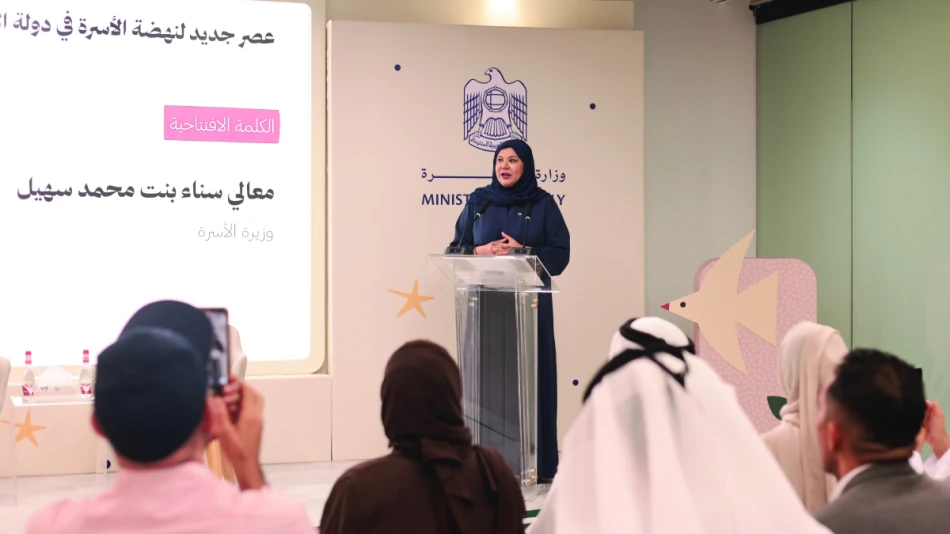
Empowering Youth Marriage and Supporting Working Mothers: Sana Suhail's Priorities
The UAE's Ministry of Family unveiled its 2025-2027 strategy, placing youth marriage and working mothers at the center of its agenda. With young people making up 34.2% of Emirati citizens, the ministry is betting big on policies that tackle financial barriers to marriage and help working women balance career and family life.
Family Minister Sana bint Mohammed Suhail announced the strategy during a press conference in Dubai, explaining that the government wants to position Emirati families as the backbone of sustainable development. The timing makes sense - the UAE has one of the youngest populations in the region, and marriage rates have been declining as living costs rise.
The strategy tackles practical problems head-on. For young couples, this means initiatives to reduce wedding costs and financial burdens that often delay marriage. The ministry is also redesigning the entire wedding experience to make it more affordable while strengthening social bonds.
Working mothers get dedicated support through new policies being developed with government partners. These include flexible work arrangements and training programs that help women manage both professional and family responsibilities. It's a recognition that women's workforce participation is crucial for the UAE's economic goals, but families need support to make it work.
The ministry is building a comprehensive family database to better understand what households actually need. This data-driven approach represents a shift from broad policies to targeted interventions based on real evidence. They're also creating a "Family and Community Behavioral Experiences" unit to diagnose behavioral patterns and design specific solutions.
Vulnerable groups aren't forgotten in the strategy. Elderly citizens, people with disabilities, and at-risk children get priority attention through what the ministry calls an "integrated protective framework." The goal is to help these groups maintain independence while ensuring they have adequate support.
The ministry plans to expand family mediation services to strengthen family and community ties. They're also updating the national strategy for people with disabilities, focusing on daily life challenges and better integration with the broader community.
Public awareness campaigns will roll out across the country, covering mental health, positive parenting, work-life balance, and substance abuse awareness. The ministry wants to shift public attitudes and encourage community participation in supporting these national initiatives.
The strategy comes with a new community identity for the ministry, reflecting its role as a national coordination platform. Instead of working in isolation, the ministry wants to unite community and institutional efforts under one umbrella to serve all family components.
For policymakers and social researchers, this represents a significant shift toward evidence-based family policy in the Gulf region. The UAE is essentially experimenting with comprehensive family support systems that other countries will likely watch closely. The success or failure of these initiatives could influence family policy across the region, particularly as other Gulf states face similar demographic challenges.
Most Viewed News

 Sara Khaled
Sara Khaled






